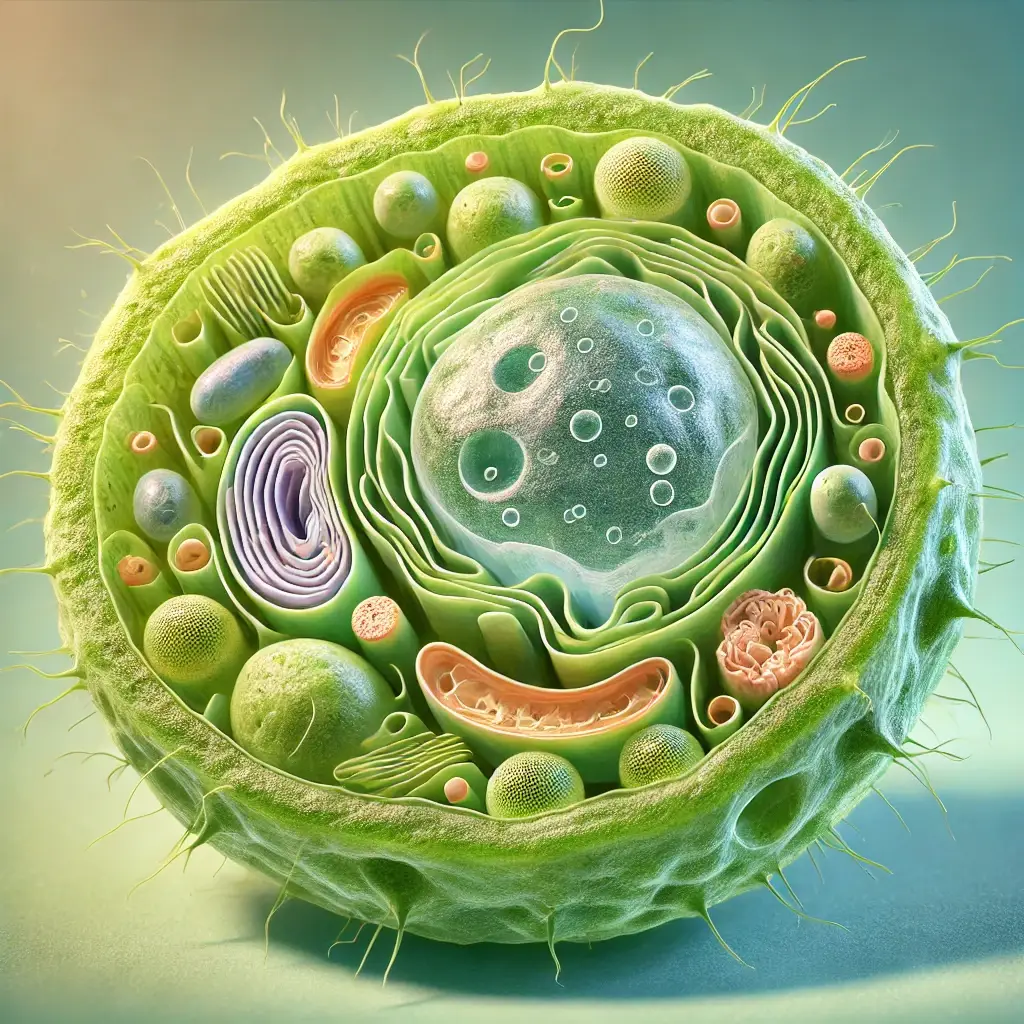Vacuole
What is a Vacuole?
A vacuole is a storage organelle within cells, primarily in plant cells, that holds water, nutrients, waste, and other substances. In plant cells, the central vacuole helps maintain cell structure and pressure.
The Role of Vacuoles in Plants
In plants, vacuoles store water and nutrients to keep the plant alive. They also help maintain the plant’s shape by filling with water, which creates pressure against the cell wall. For example, when a plant has enough water, its leaves and stems stand tall. Without enough water, the vacuoles shrink, and the plant wilts. This storage system is essential for plant survival.
Vacuoles in Animal Cells
Vacuoles in animal cells are smaller than those in plants but still important. They store nutrients, waste, and other materials. For example, some animal cells use vacuoles to isolate harmful substances. While not as large or obvious as in plants, these compartments play a crucial role in keeping animal cells organized.
How Vacuoles Store Nutrients
Vacuoles act as tiny storage units for cells. They hold nutrients like sugars, proteins, and salts that the cell needs to function. For example, during times of food scarcity, the cell can draw on these stored nutrients. This ability helps cells survive when resources are limited.
Waste Removal in Cells
Vacuoles help cells manage waste by storing harmful substances. Once the waste is collected, the cell can safely remove it. For example, in animal cells, vacuoles may isolate toxins before they are flushed out. This function keeps the cell clean and healthy.
Why Vacuoles Are Larger in Plants
Plant cells have larger vacuoles because they need to store more water and nutrients. These large vacuoles also create pressure that helps plants stay upright. For instance, when a tree stands tall, its vacuoles are full of water, giving it strength. Without this feature, plants would struggle to grow properly.
Maintaining Cell Health
Vacuoles play a key role in maintaining cell health. By regulating water levels, they keep cells from drying out or bursting. For example, during a drought, a plant’s vacuoles conserve water to keep it alive. This balance is essential for the survival of the cell and the organism.
Special Vacuoles in Some Organisms
Some organisms have unique vacuoles with special purposes. For example, single-celled organisms like amoebas have contractile vacuoles that pump out excess water. This prevents the cell from bursting. These specialized vacuoles show how adaptable and diverse cells can be.
Vacuoles and Energy Storage
In addition to water and waste, these organelles can store energy. Plant cells, for instance, store starch in vacuoles as a source of energy. When the plant needs energy, it breaks down the stored starch. This ability helps plants survive periods without sunlight.
How Vacuoles Compare to Other Organelles
Vacuoles are different from other cell parts like the nucleus or mitochondria. While those organelles control functions or produce energy, vacuoles focus on storage and balance. For example, a nucleus manages the cell’s information, while vacuoles act like a warehouse. Together, all the organelles work to keep the cell functioning.
Related Videos
Related Links
Plant Vacuoles: Storage and Support in Cells
Explore the role of vacuoles in plant cells, essential for storage, maintaining structure, and regulating water balance to support plant health and growth.
https://bscb.org/learning-resources/softcell-e-learning/vacuole-plants/
